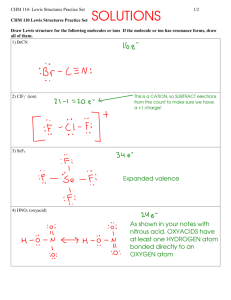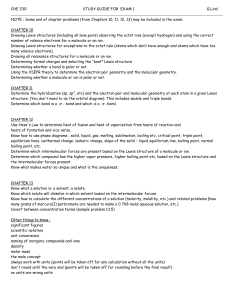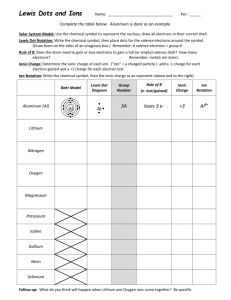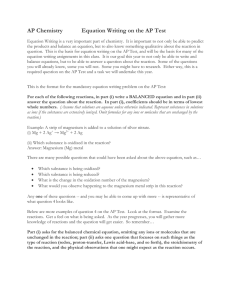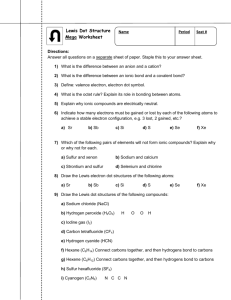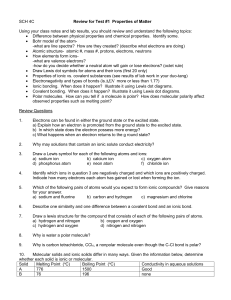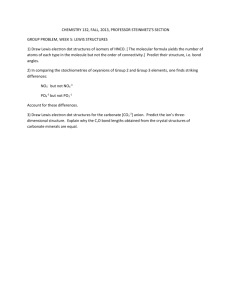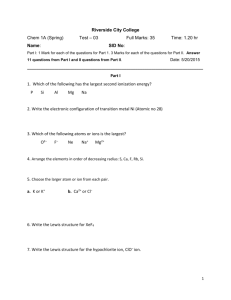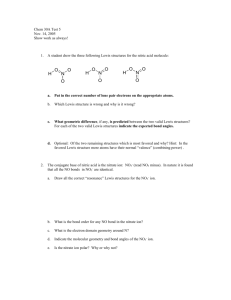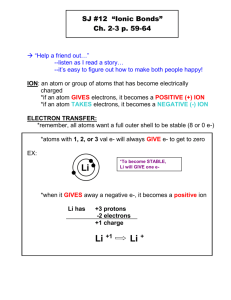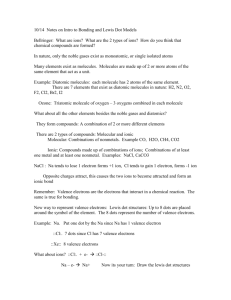Exam 2 Topics
advertisement
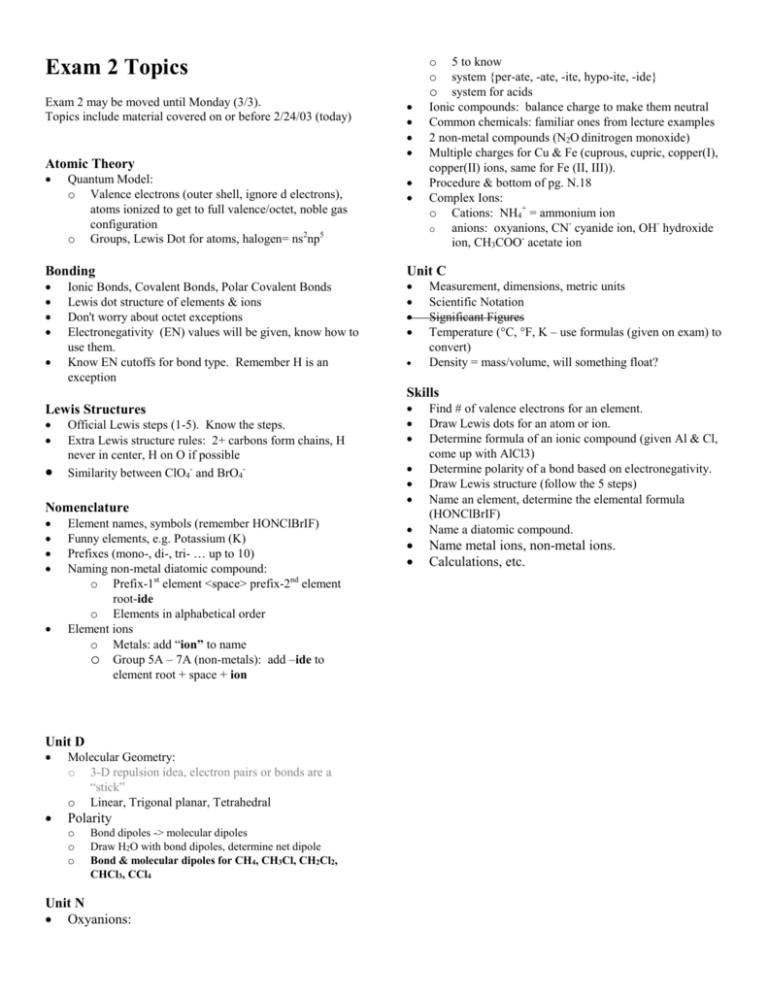
o
o
Exam 2 Topics
Exam 2 may be moved until Monday (3/3).
Topics include material covered on or before 2/24/03 (today)
Atomic Theory
Quantum Model:
o Valence electrons (outer shell, ignore d electrons),
atoms ionized to get to full valence/octet, noble gas
configuration
o Groups, Lewis Dot for atoms, halogen= ns2np5
Bonding
Ionic Bonds, Covalent Bonds, Polar Covalent Bonds
Lewis dot structure of elements & ions
Don't worry about octet exceptions
Electronegativity (EN) values will be given, know how to
use them.
Know EN cutoffs for bond type. Remember H is an
exception
5 to know
system {per-ate, -ate, -ite, hypo-ite, -ide}
o system for acids
Ionic compounds: balance charge to make them neutral
Common chemicals: familiar ones from lecture examples
2 non-metal compounds (N2O dinitrogen monoxide)
Multiple charges for Cu & Fe (cuprous, cupric, copper(I),
copper(II) ions, same for Fe (II, III)).
Procedure & bottom of pg. N.18
Complex Ions:
o Cations: NH4+ = ammonium ion
o
anions: oxyanions, CN- cyanide ion, OH- hydroxide
ion, CH3COO- acetate ion
Unit C
Measurement, dimensions, metric units
Scientific Notation
Significant Figures
Temperature (C, F, K – use formulas (given on exam) to
convert)
Density = mass/volume, will something float?
Skills
Lewis Structures
Official Lewis steps (1-5). Know the steps.
Extra Lewis structure rules: 2+ carbons form chains, H
never in center, H on O if possible
Similarity between ClO4- and BrO4-
Nomenclature
Element names, symbols (remember HONClBrIF)
Funny elements, e.g. Potassium (K)
Prefixes (mono-, di-, tri- … up to 10)
Naming non-metal diatomic compound:
o Prefix-1st element <space> prefix-2nd element
root-ide
o Elements in alphabetical order
Element ions
o Metals: add “ion” to name
o Group 5A – 7A (non-metals): add –ide to
element root + space + ion
Unit D
Molecular Geometry:
o 3-D repulsion idea, electron pairs or bonds are a
“stick”
o Linear, Trigonal planar, Tetrahedral
Polarity
o
o
o
Bond dipoles -> molecular dipoles
Draw H2O with bond dipoles, determine net dipole
Bond & molecular dipoles for CH4, CH3Cl, CH2Cl2,
CHCl3, CCl4
Unit N
Oxyanions:
Find # of valence electrons for an element.
Draw Lewis dots for an atom or ion.
Determine formula of an ionic compound (given Al & Cl,
come up with AlCl3)
Determine polarity of a bond based on electronegativity.
Draw Lewis structure (follow the 5 steps)
Name an element, determine the elemental formula
(HONClBrIF)
Name a diatomic compound.
Name metal ions, non-metal ions.
Calculations, etc.
